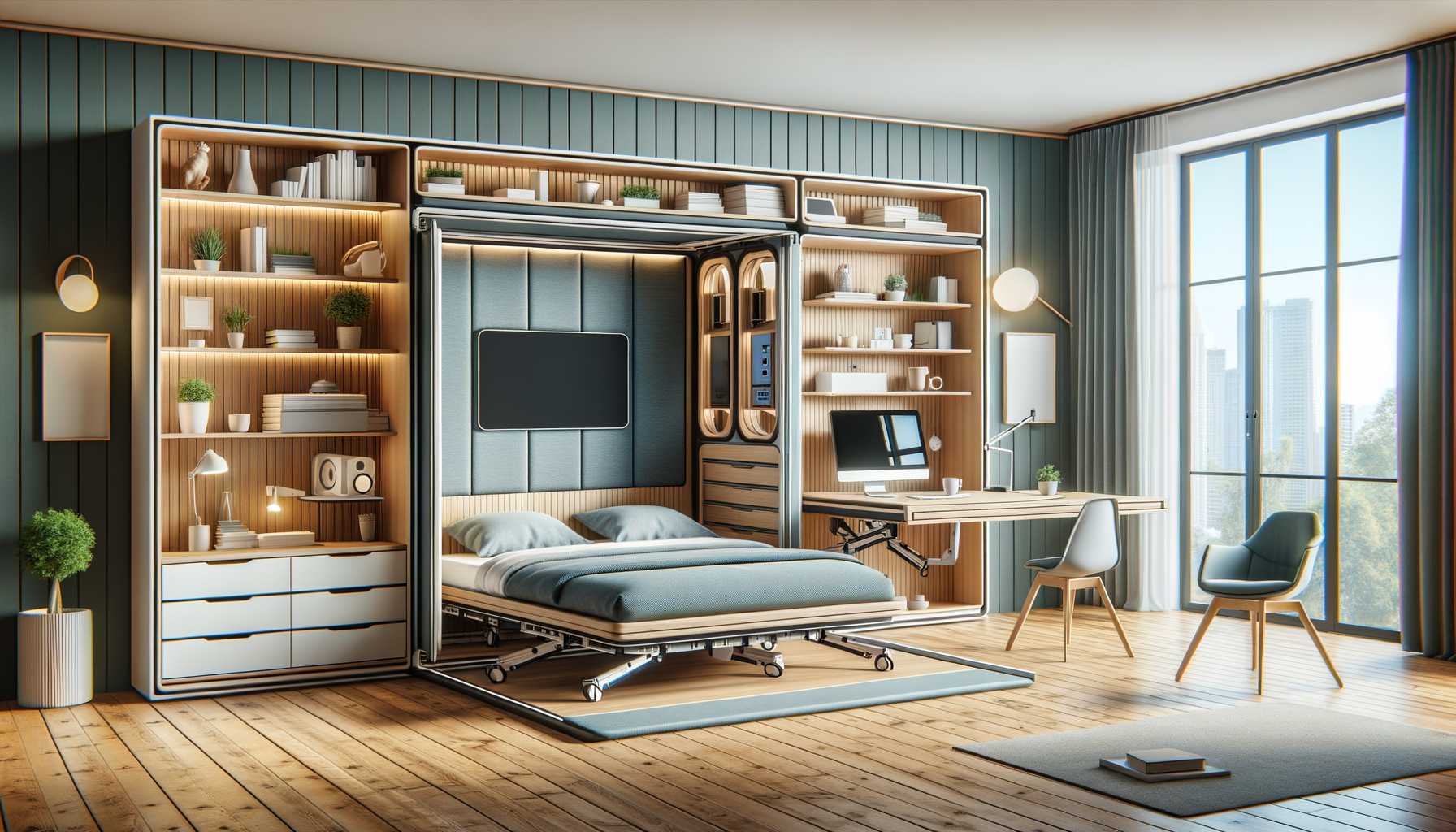Introduction to Smart Furniture
In the age of innovation, where technology seamlessly integrates into our daily lives, smart furniture emerges as a beacon of modern convenience and efficiency. These pieces of furniture are not just about aesthetics; they embody functionality, adaptability, and intelligence. Smart furniture can transform living spaces into interactive environments that cater to individual needs, enhancing comfort and productivity. From adjustable beds that promote better sleep to smart kitchen tables that double as workspaces, the possibilities are endless. As urban living spaces become more compact, the demand for multifunctional and space-saving solutions like smart furniture is on the rise. This trend is not just a fleeting fancy; it’s a reflection of changing lifestyles where technology and living spaces converge.
The Evolution of Smart Furniture
The journey of smart furniture began with the integration of basic technology into household items, such as recliners with built-in massagers or beds with adjustable firmness settings. Over the years, this concept has evolved significantly, thanks to advancements in IoT (Internet of Things) and AI (Artificial Intelligence). Modern smart furniture now includes features like voice control, app connectivity, and even self-cleaning capabilities. For instance, smart sofas can now adjust their shape based on the number of occupants, while smart desks can monitor your posture and suggest breaks. This evolution is driven by a need for efficiency and personalization in home environments, catering to the diverse requirements of users. The future of smart furniture looks promising, with continuous innovations aimed at making our lives more comfortable and sustainable.
Benefits of Smart Furniture
Smart furniture offers a myriad of benefits that extend beyond mere convenience. One of the primary advantages is the enhancement of space utilization. In urban settings, where space is often a luxury, smart furniture can serve multiple purposes, such as a bed that transforms into a desk or a coffee table with hidden storage compartments. Additionally, smart furniture promotes energy efficiency. Many pieces are designed to be eco-friendly, with features like automatic lighting adjustments based on room occupancy. Health and wellness are also prioritized, with furniture that encourages ergonomic postures and monitors environmental factors like air quality. The connectivity of smart furniture allows for seamless integration with other smart home devices, creating a cohesive and efficient living environment.
Popular Types of Smart Furniture
The market for smart furniture is diverse, catering to various needs and preferences. Some popular types include:
- Smart Beds: These beds offer features like sleep tracking, temperature control, and adjustable firmness, ensuring a restful night’s sleep.
- Smart Desks: Ideal for home offices, these desks can adjust height, track work hours, and even remind users to take breaks.
- Smart Sofas: Equipped with charging ports, Bluetooth speakers, and adjustable seating, these sofas enhance relaxation and entertainment.
- Smart Tables: Often used in kitchens, these tables can weigh ingredients, display recipes, and even charge devices.
Each type of smart furniture is designed to enhance specific aspects of daily living, offering solutions that are both practical and innovative.
The Future of Smart Furniture
As technology continues to advance, the future of smart furniture is poised for exciting developments. Designers and manufacturers are exploring the integration of more advanced AI, allowing furniture to learn and adapt to user habits over time. This could lead to personalized experiences where furniture anticipates needs and preferences. Sustainability is another focus, with the development of furniture made from recycled materials and designed for longevity. The concept of modularity is also gaining traction, where users can customize and expand their furniture according to changing needs. As smart cities become a reality, smart furniture will play a crucial role in creating living spaces that are not only functional but also harmonious with the environment. The future of smart furniture is not just about innovation; it’s about enhancing the quality of life in an increasingly connected world.



Leave a Reply